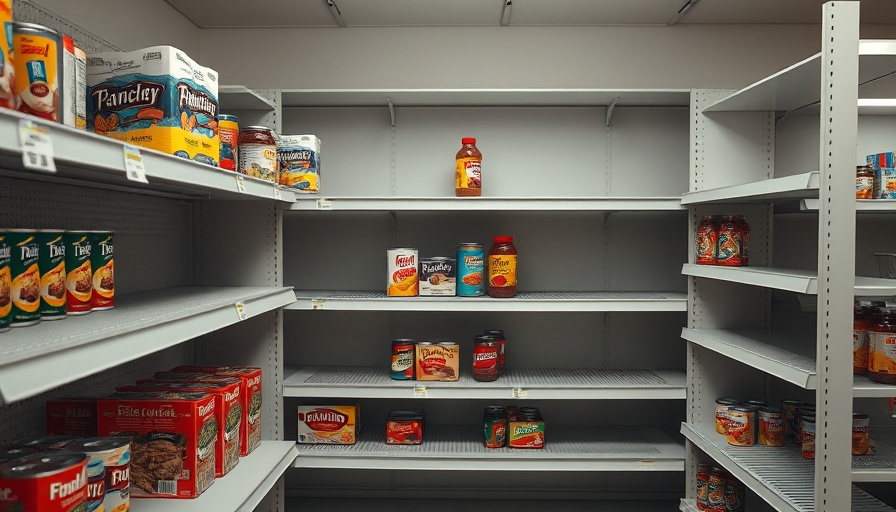
Food Insecurity on the Rise in Fort Bend County: A Community Alarm
Fort Bend County has reported a concerning rise in food insecurity. Recent statistics unveil that nearly 12% of the county's population faces challenges in securing consistent access to sufficient food. This alarming trend underscores not just a local crisis, but a reflection of broader economic struggles impacting many households across the Houston metro area.
Understanding Food Insecurity in Our Neighborhoods
Food insecurity is a multifaceted issue, often exacerbated by factors such as job loss, health issues, and rising living costs. In Fort Bend, areas like Sugar Land and Missouri City are witnessing increased demand for food distribution services. Local organizations, including food banks, are stepping up to address this growing need, yet the resources often fall short. With rising inflation and stagnant wages, families are finding it increasingly tough to make ends meet.
Why This Matters: The Ripple Effect on Our Communities
Food insecurity does not only affect individual families; it impacts our entire community. Schools report rising numbers of students requiring assistance, affecting educational outcomes and community health. In Bay Area neighborhoods and the Heights, where many are still recovering from the past economic downturns, the rising food insecurity adds another layer of distress to already strained community resources.
Local Heroes: Community Initiatives Rise to the Occasion
Amidst this challenge, local heroes emerge. Many residents are rallying behind food drives and volunteering for local food pantries, demonstrating the strength and resilience of our community. Organizations like the Houston Food Bank and smaller local charities are not just distributing food but also implementing programs that educate families about nutrition and budgeting, which are vital in facilitating long-term solutions to hunger.
Future Trends and Predictions: Preparing for What’s Next
Looking ahead, experts anticipate that addressing food insecurity will require concerted efforts from both public and private sectors. Houston commercial real estate developments could play a role in this, as they may facilitate new community resources and local businesses that contribute to alleviating food scarcity. The community must engage in discussions with local government and non-profits to devise innovative solutions that will ultimately bolster food security efforts.
Taking Action: Community Mapping for Food Accessibility
As residents, we can also play a part in mapping our community resources. By utilizing local surveys and tools, families can better locate nearby food pantries, community kitchens, and other assistance programs. This collaborative effort will not only raise awareness of existing services but can also highlight gaps where new support is necessary.
Closing Thoughts: A Call to Action
In light of these pressing issues, it’s vital for residents of Fort Bend County and the greater Houston area to actively participate in solutions. Whether it's donating time, resources, or even spreading the word about local food distribution programs, every action counts. We can build a stronger community by ensuring that everyone has access to nutritious food.
 Add Row
Add Row  Add
Add 



Write A Comment